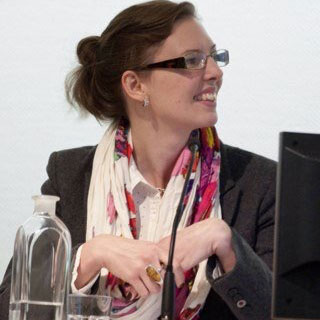Generosity and hospitality are rich seams in Ancient Greek mythology. Ovid’s tale of Baucis and Philemon describes the good fortune bestowed upon a couple that showed kindness to the Greek Gods Jupiter and Mercury who were disguised as ordinary peasants. Stories with the moral of ‘xenia’ (the Greek concept of hospitality towards newcomers), teach us that good will come from aiding and showing kindness to others.

The RSA’s work exploring refugee education in Athens proves that the concept of ‘xenia’ is alive and thriving in Greece today. Some of the examples we observed while in Athens were the work of The Cube, a co-working innovation space that has set up a Self-Organised Learning Environment (SOLE) to support refugee children, Hope School in Skaramagas refugee camp which provides education for displaced children run by volunteers within the camp and ACS Athens (the American Community School) which is piloting a project educating and mentoring unaccompanied minors. There are many other examples that illustrate the resourcefulness and resilience within the city.
Download 'Cities of Reciprocity' (PDF, 0.5 MB)
National governments, in Greece and elsewhere, are making strides forward to integrate young people into mainstream schooling. But the scale of the challenge is too great for governments alone. We need concerted action from all sectors of society to come together to support displaced communities. There is valuable work being done to collate best practice examples and highlight innovation in this area. Two examples include:
- Save the Children teeming up with UNHCR and Pearson to launch Promising Practices, an initiative that is sourcing, documenting and promoting innovative practices in refugee education.
- The WISE Awards which support and promote successful innovative projects that are addressing global educational challenges. Since 2009, WISE has received more than 2,850 applications from over 150 countries. These projects represent a growing resource of expertise and sound educational practice.
It is tempting to label large-scale movement of people ‘a crisis’ and lament the challenges it brings. But refugee communities bring opportunities too. Professor Alexander Betts of Oxford University urges us to consider that there should be a shift from perpetuating a culture of dependency to creating an environment of opportunity. As a quote from Salam Neighbor, an award-winning documentary about life in a refugee camp tells us: “It would be a tragedy to lose the potential of this population when they are the solution.” The Tent Foundation published research to show that a humanitarian investment in refugees will yield economic dividends: Their analysis calculates that Europe will gain €2 for every €1 spent on refugees.
Today as we celebrate Refugee week, we should reflect on this year’s theme: ‘Different pasts, shared future’ – a message that reminds us of the ties that connect us no matter where we hail from. There are countless examples of goodwill and compassion from all over the world ranging from small offers of help, befriending, mentoring and twinning, to large grants and innovative technology projects.
British universities are leading the way in offering academic support and grants to refugees. And refugees themselves are demonstrating their academic ambition. Organisations like Team up 2 Teach are piloting innovative approaches and setting up co-creation sessions to share teaching resources and ideas. Techfugees is harnessing the power of technology to build the resilience of refugee communities.
A positive narrative about refugees is likely to foster acts of reciprocity, hospitality and generosity from all sectors of society. We all have skills to share and gifts to give. This is an issue where everyone can play their part.
If you are a member of an organisation seeking to support refugee education do read this RSA resource, which outlines the sorts of actions you and your organisation can take in support of refugee education.
Download 'Cities of Reciprocity' (PDF, 0.5 MB)
Alice Sachrajda is an RSA associate and a freelance creative researcher and storyteller @alicesachrajda

Join the discussion
Comments
Please login to post a comment or reply
Don't have an account? Click here to register.
It is heart warming to read about initiative(s) which believe in the potential for change for the better in the lives of refugees; helping them to transition from dependency to opportunity to contribute. There is nothing a refugee, with the right kind of support, cannot do. As a refugee myself, I do testify that having been a beneficiary in one form or other - thanks in large measure to the kindness of both individuals and institutions; I am in the process of making the full transition from dependency to opportunity to contribute in a meaningful way. Please see my blog for further details: https://thekamugasachallenge.com/
The only contribution I can make to this cause at the moment is to encourage you, and to pray for your success. You are doing great work, and long may it continue.